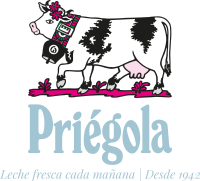Milk fermented Laban
[av_one_full first]Since times dating back to before the birth of Christ, the yogurt was already consumed in the eastern lands but to get that product to the Lebanon, were made some modifications and then happen to be known with the name of 'Laban'.
[/av_one_full]
[av_one_full first]
[av_image src='http://priegola.com/wordpress/wp-content/uploads/2012/08/laban.jpg' attachment='16017' align='center' animation='no-animation' link='lightbox' target='' styling='' caption='' font_size='' appearance=''][/av_image]
[/av_one_full]
[av_one_full first]
This food was born as a response to the needs of an eminently pastoral society that had no way to conserve milk if this was not fermented. In this way, they modified intelligently processing in such a way that possible conservation at room temperature.
The Laban is simply milk subjected to a process of fermentation by high pasteurisation. Fermentation originating lower in lactose, making more digestible milk, at a time which preserves all its nutritional properties. Recent microbiological studies of fermenters strains in the traditional Lebanese Laban, show more than ninety different strains of lactic acid, being mostly Lactobacillus bacteria delbrueckii bulgaricus subspespecie and secondly Streptococcus thermophilus, by what the researchers conclude that the Laban is fermented milk nutritional values similar to yogurt (although with specific characteristics) and yoghurt-like texture.
Benefits include a greater digestibility which no milk fermented by their reduction in lactose (could be suitable for some people with mild intolerance to lactose as an alternative to milk lactose-free) and the added benefit of each individual's own intestinal flora regulation, modulating it towards an increase of the beneficial strains to the detriment of the pathogenic , while the intestinal transit would improve, combating constipation (in this sense would increase milk tolerance in people with this problem).
The importance in the habits of the Arab culture is so marked in its consumption, that about 70% of its milk production is intended precisely to the elaboration of the Laban in the societies of the Middle East. Mostly used profusely in the Lebanese and Syrian cuisine but its dominance has extended to all those Nations of Arab influence, and therefore, all countries that have migrated these peoples, giving the option to other cultures, to know its wonderful and healthy digestive and nutritional properties.[/av_one_full]
Leche Fermentada Lában
[av_one_full first]Desde tiempos que se remontan a antes del nacimiento de Cristo, el yogur ya era consumido en las tierras orientales pero al llegar dicho producto al Líbano, se le hicieron ciertas modificaciones y entonces pasaría a conocerse con el nombre de ‘Laban’.
[/av_one_full]
[av_one_full first]
[av_image src='http://priegola.com/wordpress/wp-content/uploads/2012/08/laban.jpg' attachment='16017' align='center' animation='no-animation' link='lightbox' target='' styling='' caption='' font_size='' appearance=''][/av_image]
[/av_one_full]
[av_one_full first]
Dicho alimento nació como respuesta a las necesidades de una sociedad eminentemente pastoril que no tenía forma de conservar la leche si ésta no se hallaba fermentada. De esta manera, modificaron inteligentemente su procesado de forma que fuese posible su conservación a temperatura ambiente.
El Labán es simplemente leche sometida a un proceso de fermentación mediante alta pasteurización. La fermentación origina una disminución en la lactosa, haciendo la leche más digerible, a la vez que conserva todas sus propiedades nutricionales. Recientes estudios microbiológicos de las cepas fermentadoras en el Laban tradicional libanés, muestran más de noventa cepas diferentes de bacterias lácticas, siendo en su mayoría Lactobacillus delbrueckii subspespecie bulgaricus y en segundo lugar Streptococcus thermophilus, por lo que los investigadores concluyen que el Laban es leche fermentada con valores nutricionales similares al yogur (aunque con sus características específicas) y textura similar al yogur líquido.
Los beneficios incluyen una mayor digestibilidad que la leche no fermentada por su disminución en lactosa (podría ser apto para ciertas personas con intolerancias leves a la lactosa como alternativa a las leches sin lactosa) y el beneficio añadido de la regulación de la flora intestinal propia de cada individuo, modulándola hacia un incremento de las cepas beneficiosas en detrimento de las patógenas, a la vez que se mejoraría el tránsito intestinal, combatiendo el estreñimiento (en este sentido aumentaría la tolerancia de los lácteos en personas con dicho problema).
La importancia en los hábitos de la cultura árabe es tan marcada en su consumo, que cerca del 70% de su producción láctea se destina precisamente a la elaboración del Laban en las sociedades de Oriente Medio. Sobre todo se usa profusamente en la cocina libanesa y siria pero su predominio se ha extendido a todas aquellas naciones de influencia árabe y, por consiguiente, a todos los países a los que han emigrado estos pueblos, dando la opción a otras culturas, de conocer sus estupendas y saludables propiedades digestivas y nutricionales.[/av_one_full]
Magazine table. The Balneario de las Vacas. Towards a Premium milk.
Magazine table (wine, gastronomy and trends) in his publication of March 2012 makes a report in Arpon.
Revista Sobremesa. El Balneario de las Vacas. Hacia una Leche Premium.
La Revista Sobremesa (Vino, Gastronomía y Tendencias) en su publicación de Marzo 2012 realiza un reportaje en Priégola.
Livestock Arpon | Best Spanish exploitation by ICO 2012
Livestock Arpon receives the diploma of "best Spanish exploitation by ICO (index combined Genetics)" granted by CONAFE, Confederation of associations of Frisona Española.
Ganadería Priégola | Mejor Explotación Española por ICO 2012
Ganadería Priégola recibe el diploma de "Mejor Explotación Española por ICO (Indice Combinado de Genética)" otorgado por CONAFE, Confederación de Asociaciones de Frisona Española.
Interview chain COPE. Agropopular
[av_one_full first]The Agropopular program of the chain COPE directed by César Lumbreras, performs an interview with Nicolás Sieber, head of communications, on Cow Comfort in Arpon.
[/av_one_full]
Entrevista Cadena COPE. Agropopular
[av_one_full first]El programa Agropopular de la cadena COPE dirigido por César Lumbreras, realiza una entrevista a Nicolás Sieber, responsable de comunicación, sobre el Cow Comfort en Priégola.
[/av_one_full]









